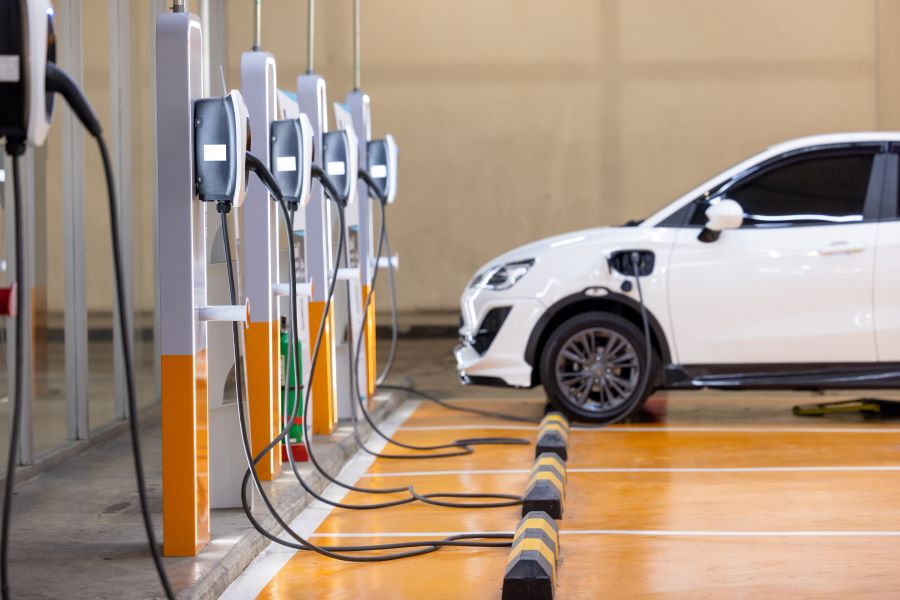Understanding Home Electric Vehicle Charging Solutions
As electric vehicles become increasingly common across the United Kingdom, more drivers are exploring home charging options to power their cars conveniently and efficiently. Installing a dedicated charging point at home offers significant advantages over relying solely on public infrastructure, including reduced costs per charge, greater convenience, and the ability to start each day with a full battery. This guide examines the various types of home charging equipment available, their capabilities, installation considerations, and what UK drivers should know before making a purchase decision.

The transition to electric vehicles has prompted millions of homeowners to consider installing dedicated charging equipment at their properties. Understanding the different types of chargers, their charging speeds, and associated costs helps drivers make informed decisions that suit their daily driving patterns and budget.
What Is an Electric Car Charger for Home?
An electric car charger for home is a dedicated charging unit installed at a residential property to replenish an electric vehicle’s battery. Unlike standard three-pin plug sockets, purpose-built home chargers deliver power more efficiently and safely, incorporating features such as weatherproofing, cable management, and smart connectivity. Most home chargers are wall-mounted units installed in garages, driveways, or designated parking areas, providing a reliable charging solution that eliminates the need to search for public charging stations for everyday use.
Home charging units come in various power outputs, typically ranging from 3.6 kW to 22 kW, though domestic installations in the UK commonly feature 7 kW chargers due to single-phase electrical supply limitations. These units connect directly to the home’s electrical system and require professional installation by certified electricians to ensure compliance with safety regulations and building codes.
How Does the Fastest Electric Car Charger for Home Compare?
When discussing the fastest electric car charger for home use, it is important to understand that charging speed depends on both the charger’s power output and the vehicle’s onboard charging capacity. In residential settings, the fastest practical option for most UK homes is a 7 kW single-phase charger, which can add approximately 25-30 miles of range per hour of charging. Properties with three-phase electrical supply may accommodate 22 kW chargers, potentially tripling charging speeds for compatible vehicles.
However, not all electric vehicles can accept the maximum charging rate offered by higher-powered units. The vehicle’s onboard charger acts as a limiting factor, meaning a car with a 3.6 kW onboard charger will charge at that rate regardless of whether it is connected to a 7 kW or 22 kW charging point. Drivers should verify their vehicle’s maximum AC charging rate before investing in higher-powered equipment to ensure they benefit from the increased capability.
Understanding Level 2 EV Chargers for Home Charging
Level 2 EV chargers for home charging represent the standard for residential electric vehicle charging infrastructure. The term originates from North American charging classifications but has become widely recognized internationally. Level 2 chargers operate on 240-volt AC power, the same voltage used by large household appliances like electric ovens and washing machines, delivering significantly faster charging than standard 120-volt outlets.
In the UK context, Level 2 charging encompasses most dedicated home charging units, providing practical charging speeds that replenish a typical electric vehicle overnight. These chargers offer the ideal balance between charging speed, installation cost, and electrical infrastructure requirements for residential properties. Many modern Level 2 chargers include smart features such as scheduling capabilities, allowing users to charge during off-peak electricity tariff periods to minimize costs, and connectivity options that enable monitoring and control via smartphone applications.
Electric Vehicle Charging: Installation and Requirements
Electric vehicle charging installation involves several important considerations beyond simply purchasing equipment. Before installation, a qualified electrician must assess the property’s electrical capacity to ensure the existing consumer unit and supply can handle the additional load. Some properties may require upgrades to the main fuse or consumer unit, adding to the overall installation cost.
Parking arrangements also influence installation feasibility and cost. Properties with off-street parking typically experience straightforward installations, while those requiring cable routing across public pavements or shared access areas may face additional complications and expenses. Local authorities may impose specific requirements for installations affecting public spaces, and building regulations must be followed to ensure safety and compliance.
Many UK homeowners benefit from government grant schemes that reduce the upfront cost of home charging equipment installation. The EV chargepoint grant provides financial support for eligible properties, particularly those in rental accommodation or flats with dedicated parking. Researching available incentives before proceeding with installation can result in substantial savings.
What Makes an EV Fast Charger for Home Different?
An EV fast charger for home differs from standard home charging equipment primarily in power output and charging speed. While the term fast charger typically refers to DC rapid chargers found at public charging stations delivering 50 kW or more, some higher-powered AC chargers for home use are marketed using similar terminology. True DC fast charging is generally impractical for residential installations due to the significant electrical infrastructure requirements, high equipment costs, and limited compatibility with domestic electrical supplies.
For home use, fast charging capability is best achieved through maximizing AC charging speeds within the constraints of residential electrical systems. A 7 kW charger represents the fastest practical option for most UK homes with single-phase supply, while three-phase properties may accommodate 11 kW or 22 kW units. These higher-powered AC chargers significantly reduce charging times compared to basic equipment but remain distinct from the DC rapid charging technology used in commercial settings.
Cost Considerations and Provider Comparison
Understanding the financial aspects of home charging installation helps drivers budget appropriately and select suitable equipment. Costs vary based on charger specifications, installation complexity, and any necessary electrical upgrades.
| Provider | Charger Type | Power Output | Estimated Cost |
|---|---|---|---|
| Pod Point | Solo 3 | 7 kW | £900-£1,200 |
| Ohme | Home Pro | 7 kW | £850-£1,100 |
| Hypervolt | Home 3.0 | 7.4 kW | £900-£1,300 |
| Wallbox | Pulsar Plus | 7.4 kW | £700-£1,000 |
| Zappi | Zappi 2 | 7 kW | £950-£1,250 |
Prices, rates, or cost estimates mentioned in this article are based on the latest available information but may change over time. Independent research is advised before making financial decisions.
Installation costs typically range from £300 to £800 depending on the complexity of the work required, distance from the consumer unit to the charging location, and any necessary upgrades to electrical infrastructure. Properties requiring consumer unit upgrades or supply capacity increases may incur additional costs of £500 to £1,500. Many providers offer complete installation packages that include equipment, fitting, and certification, simplifying the process for homeowners.
Ongoing charging costs depend on electricity tariffs and driving patterns. Drivers using dedicated EV electricity tariffs with off-peak rates as low as 7-9 pence per kWh can charge significantly more economically than those on standard tariffs. A typical electric vehicle with a 60 kWh battery might cost £4-£6 to fully charge on an off-peak tariff, providing approximately 200-250 miles of range.
Making the Right Choice for Your Home
Selecting appropriate home charging equipment requires balancing charging speed requirements, budget constraints, and future-proofing considerations. Drivers with predictable daily mileage and overnight parking access may find that a standard 7 kW charger meets their needs perfectly, while those with higher mileage or multiple electric vehicles might benefit from more powerful options where electrical supply permits.
Smart charging features have become increasingly valuable, enabling users to optimize charging schedules, monitor energy consumption, and integrate with renewable energy sources such as solar panels. These capabilities not only reduce charging costs but also support grid stability by shifting demand to off-peak periods. When evaluating options, consider both immediate requirements and potential future needs, as charging infrastructure represents a long-term investment in electric vehicle ownership.
Professional installation by certified electricians ensures safety, compliance with regulations, and eligibility for manufacturer warranties. While DIY installation might seem cost-effective, the complexity of electrical work and regulatory requirements make professional installation the only sensible approach. Reputable installers provide certification documentation required for insurance purposes and future property sales, protecting the investment and ensuring peace of mind.




